“For you, a thousand times over.” – Hassan, Kite Runner
In Kite Runner by Khaled Hosseini, the Kite symbolizes freedom, man’s primal need to fly, to be as light as a feather. When you can fly, the dangers and harm of the world seem inconsequential. In Kabul neighborhoods, boys participate in kite-flying competitions, looking upwards in hope. Sometimes, though, hope is futile and becomes a mere empty word.
In The Kite Runner, we traveled from Kabul in the 1970s to San Francisco in 2001. Here, we meet Amir, a bright, bookish boy who loves writing stories and reading tragic tales of old. He is quiet and hates violence. However, when a person is being silent and cowardly, there is only a thin line between them. Hassan is his best friend. Intelligent, brave, and kind, he was born with a cleft lip. The same woman nursed him and Amir, and without knowing it, they became half-brothers. However, his bad luck is that he belongs to a low caste. And then tragedy strikes, born out of hatred and ridiculous discrimination. At that moment, Amir reveals an impossibly ugly side of his character, and his life is never the same again.
Hassan is one of the pivotal characters in this novel. His life and untimely death impact the protagonist, Amir, in more ways than one. If Amir’s character arc is about growth, Hassan’s arc is about not changing. Throughout his entire life, right up until his death, Hassan remains loyal, forgiving, and good-natured.
Motives & Actions
Hassan’s absolute loyalty {especially towards Amir} and bravery is one of the most fundamental values that defined his entire life. Standing up for Amir in various instances of his life, he pays a huge price for his loyalty and love.
Hassan’s ability to suffer without becoming bitter separates Amir and Hassan. Even after being accused by Amir of stealing and losing his father to a land mine, Hassan’s letter to Amir is filled with love, warmth, and brotherhood. Somehow, it has never crossed Hassan’s mind to hold a grudge against Amir. It’s unthinkable for him and not part of his character dynamic.
Values & Intentions
One of Hassan’s most significant moral values displayed throughout his life was an ingrained sense of morality. When Amir tells him to shoot a dog with his sling, Hassan is hesitant but eventually does so, only to prove his loyalty. Also, when the soldiers ask him to leave Baba’s house, he refuses to stand up to the injustice meted out to him and his wife—this eventually costs him his life.
That’s not all – Hassan’s sense of morality was so strong that he successfully passed these traits and values to his son Sohrab. He even teaches Sohrab that he must not do bad things to anyone, not even bad people, because there might be a slight chance that they will become good later in their lives. That is why Sohrab hesitates to shoot Assef with a slingshot when he can. He uses his slingshot only when backed into a corner and is scared for Amir’s safety.
Other values Hassan imbibed in his life are forgiveness, patience, integrity, and a love for hard work. His forgiving nature is best depicted when, after Amir betrayed him, he forgives him and refuses in any manner. As a child, Hassan was remarkably hardworking. He used to help his father, Ali, instead of going to school.
Even as an adult, when he married and fathered Sohrab, he held these values close to his heart. Rahim Khan noted that his wife looked at him with a worshipping gaze, implying that Hassan was committed to his duties and remained a good father and husband till the end.
Character Growth
Throughout the book, Hassan is portrayed as a flat character with characteristics opposite Amir. Hassan’s name means good, or doer of sound, and Amir describes him as a person who is “incapable of hurting anyone.” Furthermore, despite being subject to humiliation, injustice, and racism, Hassan remains complacent, good-natured, and meek.
Hassan belonged to the ethnic group of Hazaras. Since childhood, Hassan has been brought up to serve the superior Pashtuns, and he does so without ever questioning his role in life. And even though Hassan is courageous enough to defend himself and Amir against bullies like Assef, he also acknowledges Assef’s social position about his own. Despite his small rebellion, Hassan is not challenging his position as a Hazara in Afghanistan. His actions of standing up to Aseef have to be seen in the light of his defending his best friend and master, Amir. As a result, Hassan continued to maintain the social structures.
Khaled Hosseini regards him as a flat character in terms of development. He is “a lovely guy, and you root for him, and you love him, but he’s not complicated.“
Conclusion
The main protagonist of Kite Runner might be Amir, but his story is incomplete without Hassan. Despite continuously being mistreated and betrayed, he still stands up for, protects, and loves Amir. Hassan ultimately provides Amir with salvation and an opportunity to atone for his previous wrongdoings through his son, Sohrab.
PS – According to Amir, the worst sin he committed was not saving Hassan from Aseef’s assault. That being said, Assef enables Amir to forgive himself only after Amir gets beaten by Aseef. Only after this incident can Amir forgive himself and take accountability for his actions.
Ultimately, comparing Amir and Hassan, who have many differences, helps us realize the importance of a person’s family and social status. The notion of loyalty, which turns out to be one of Amir and Hassan’s similar qualities, plays a vital role in both their lives. Although absent for most of the novel, Hassan plays a crucial role in Amir, Baba, and even Sohrab.
The character traits mentioned above make it easy to see why everyone admires Hassan. His courage, modesty, kind-heartedness, and honesty are commendable, and he is a true testament to what loyalty means, even at the cost of personal hardships.
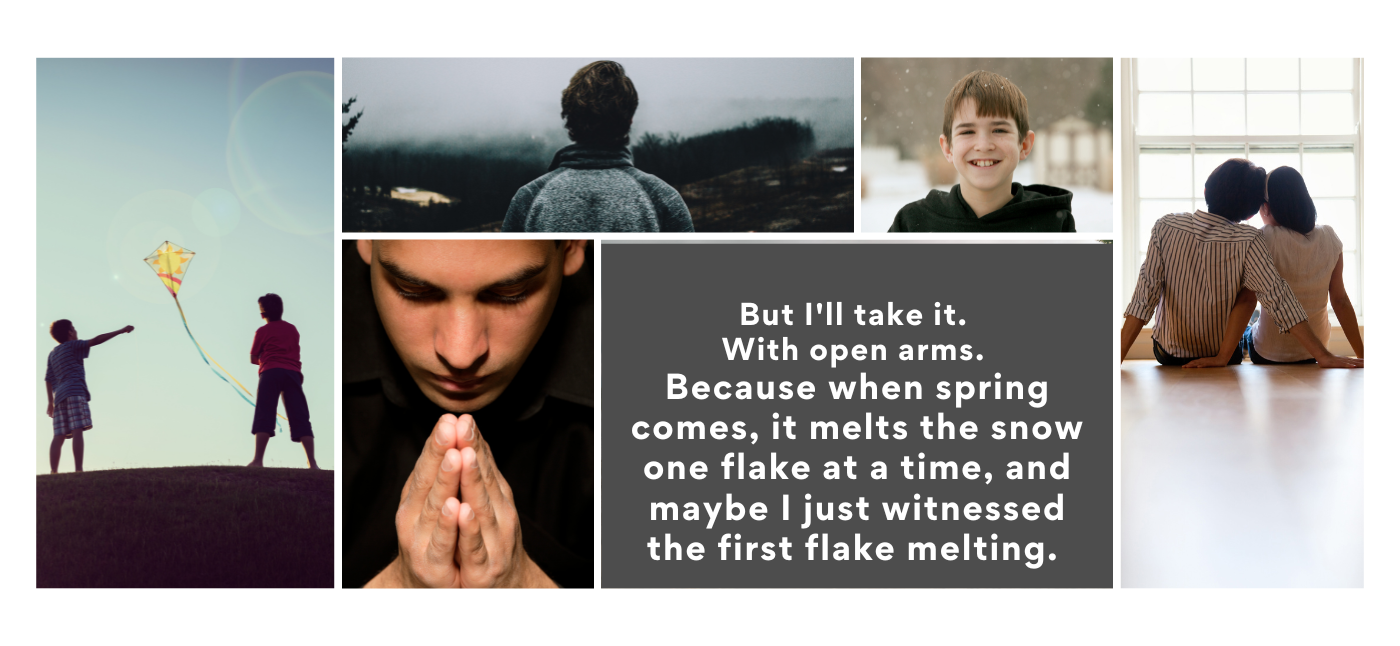 Fan Letter
Fan Letter
Ahead is a fantastic letter from Shruti Sonal (@shruti_writes) published on Terribly Tiny Tales. Read the letter below.
Dear Hassan,
I saw a blue kite fly in the saffron sky today and thought of you. At that time, I thought of the first time I had found you in the pages of a Khaled Hosseini novel without knowing you would linger on in my memory for the rest of my life. I won’t lie to you. In fact, I have been in Amir’s shoes too often, tongue-tied in situations requiring me to speak up. I have silently seen people close to me trembling in a dark alley and standing frozen in my spot. Even after being betrayed, your unconditional love and loyalty taught me that there must be a way for all of us to be good again. You taught me that a small, skinny boy could store an infinite sea of kindness and forgiveness within himself. You taught me that friendship, in its purest form, would stand with courage a thousand times over.
Because of you, I understood the silence of a generation of little boys in the streets of Afghanistan who were betrayed by empty promises and killed under the shadow of drones. Unfortunately, many more Hassans continue to disappear into pools of blood around the world. I write about you and them. I write hoping that one day, there will be enough words to fill the deafening silence.
In fact, I know you watched Amir and your son rebuild their lives in a land far away from the streets of Kabul. Are there kites in heaven for you to run after? I hope, I hope so. And even if there aren’t, I will send kites away to you a million times over.
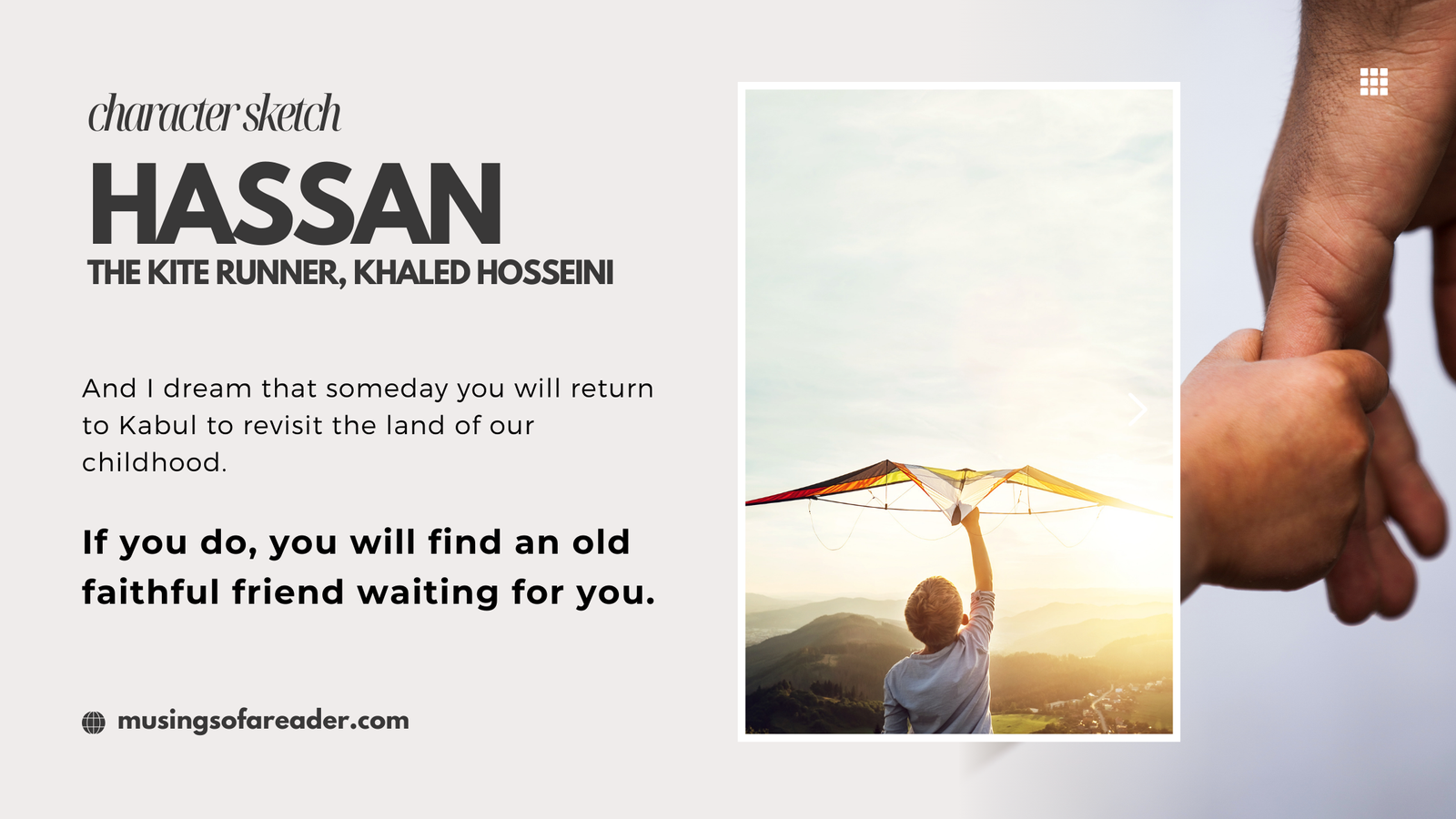
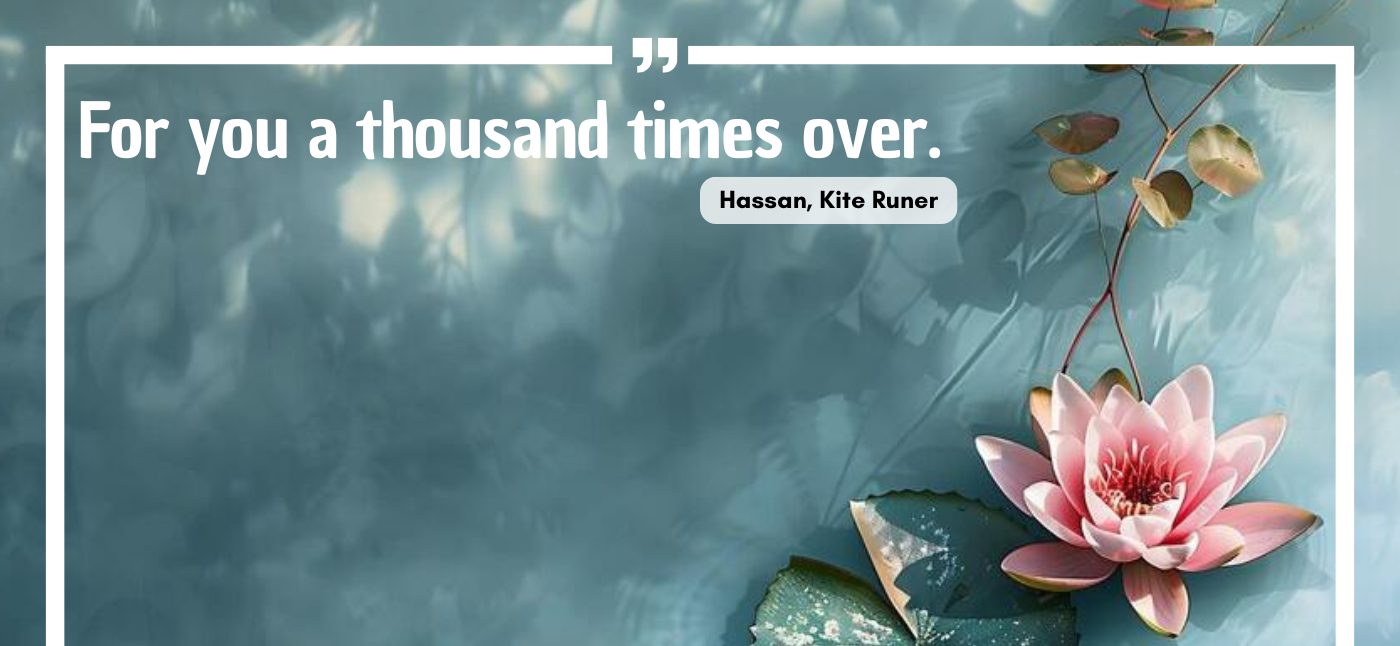
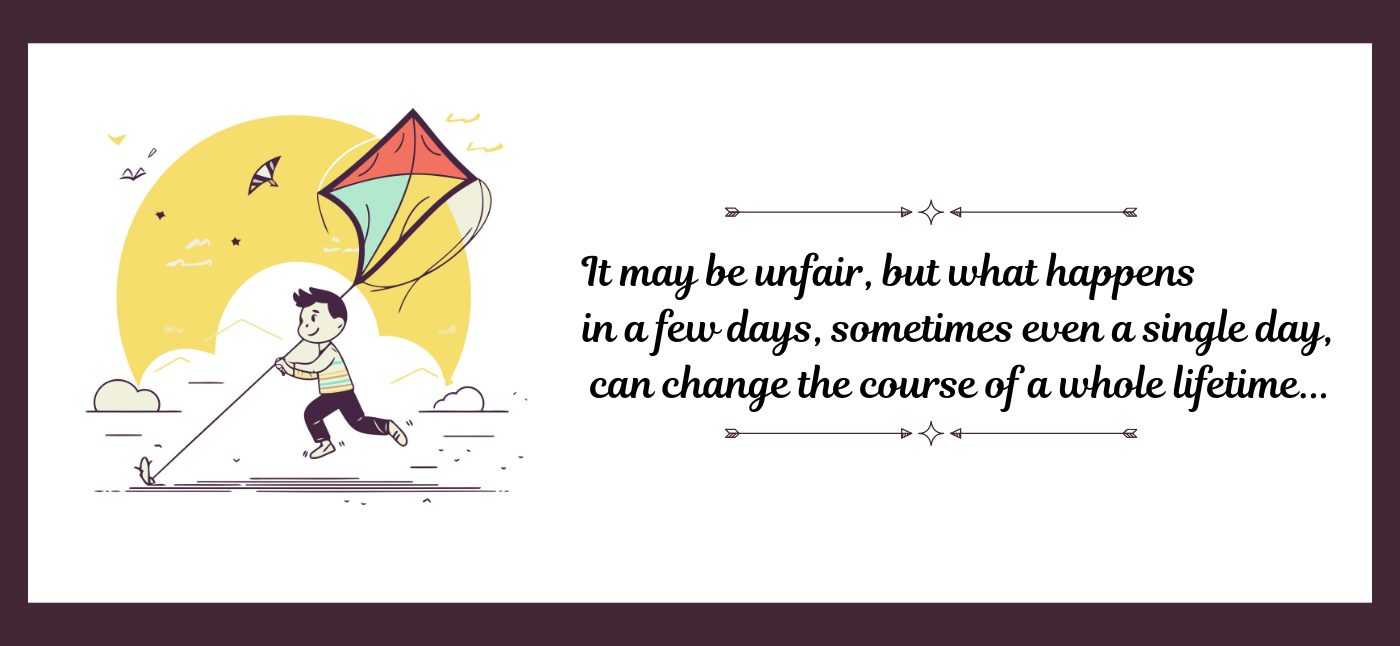
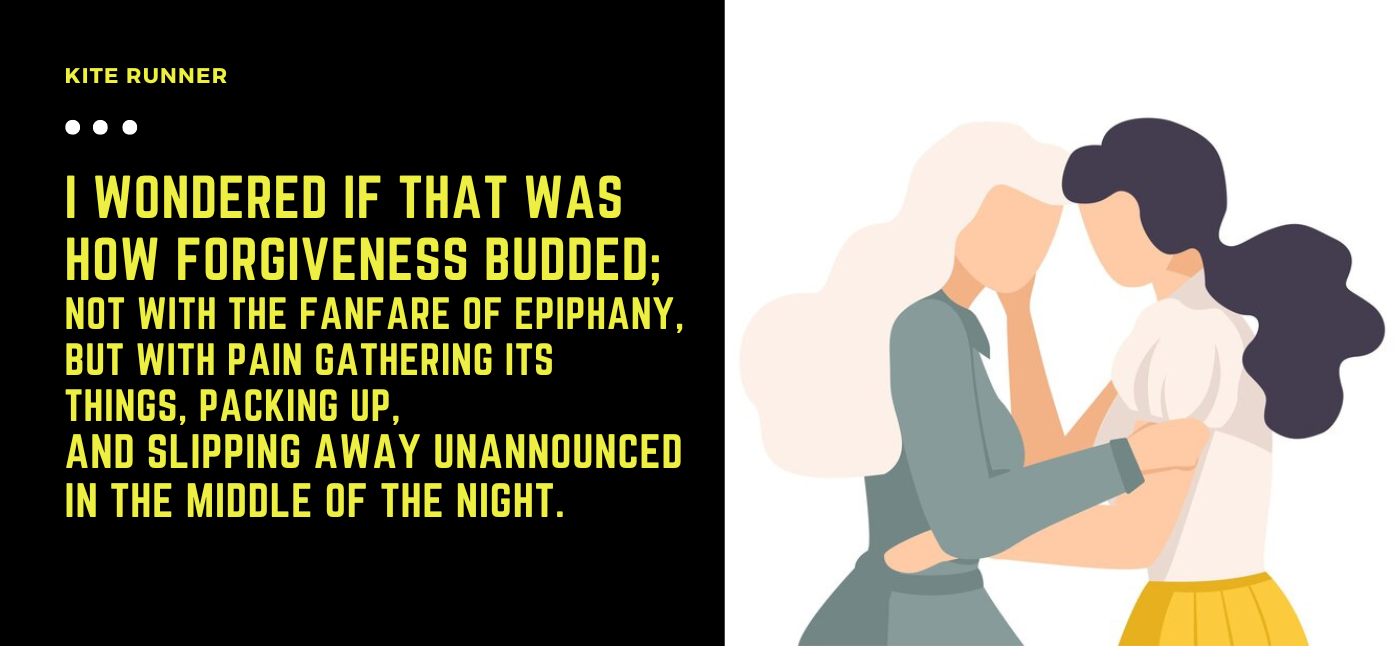
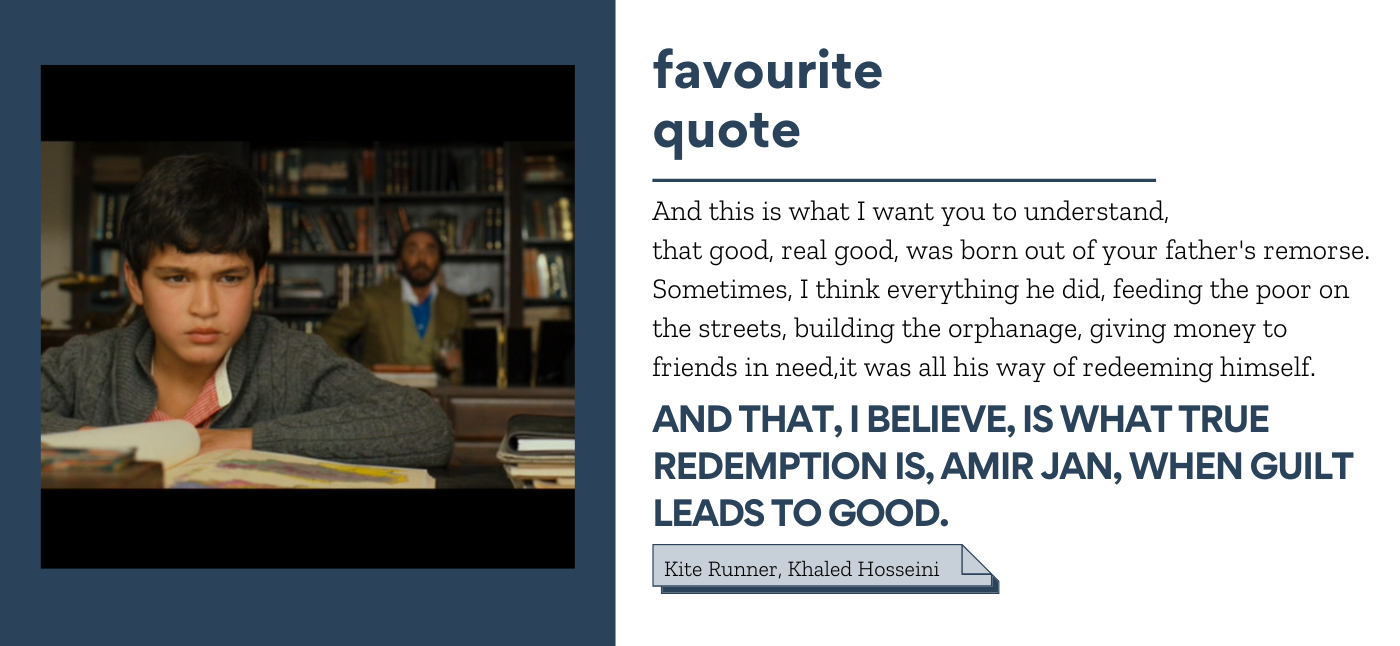

There are no reviews yet.